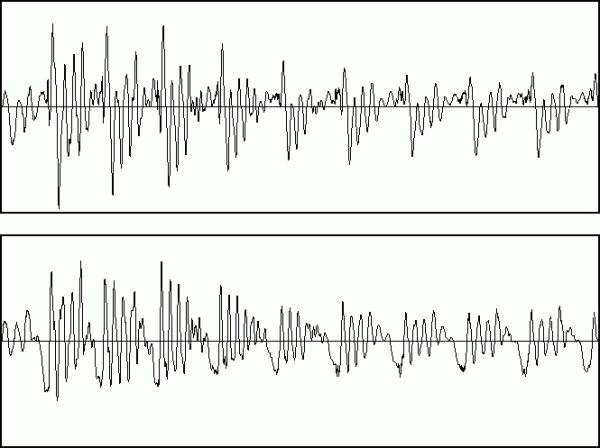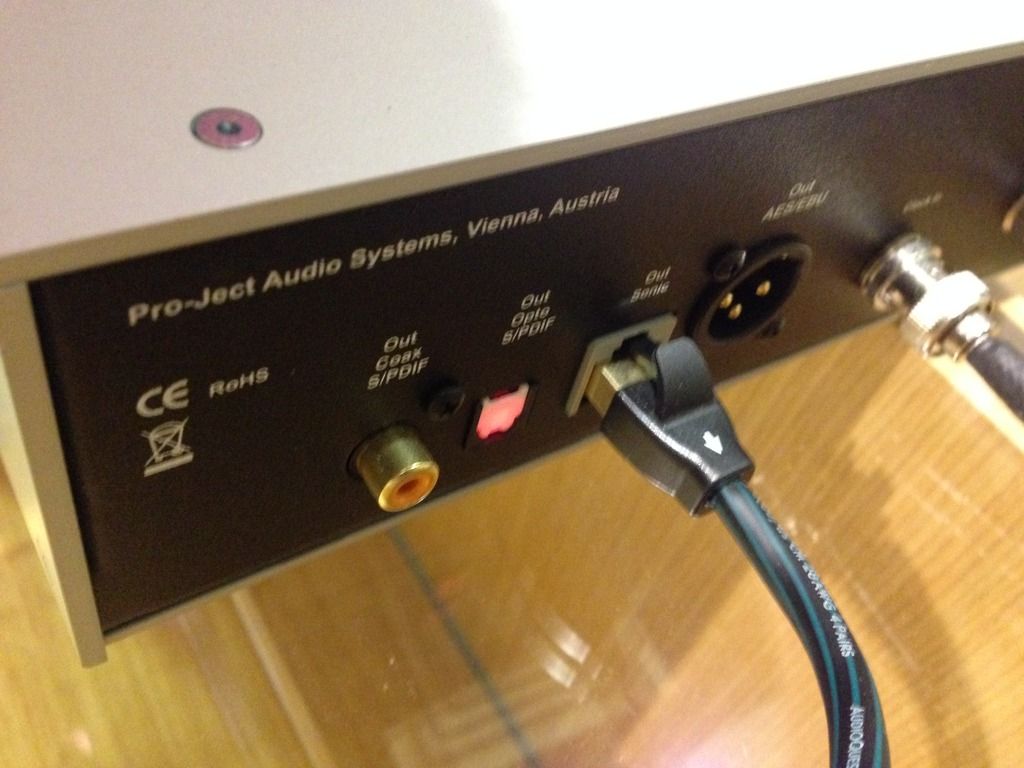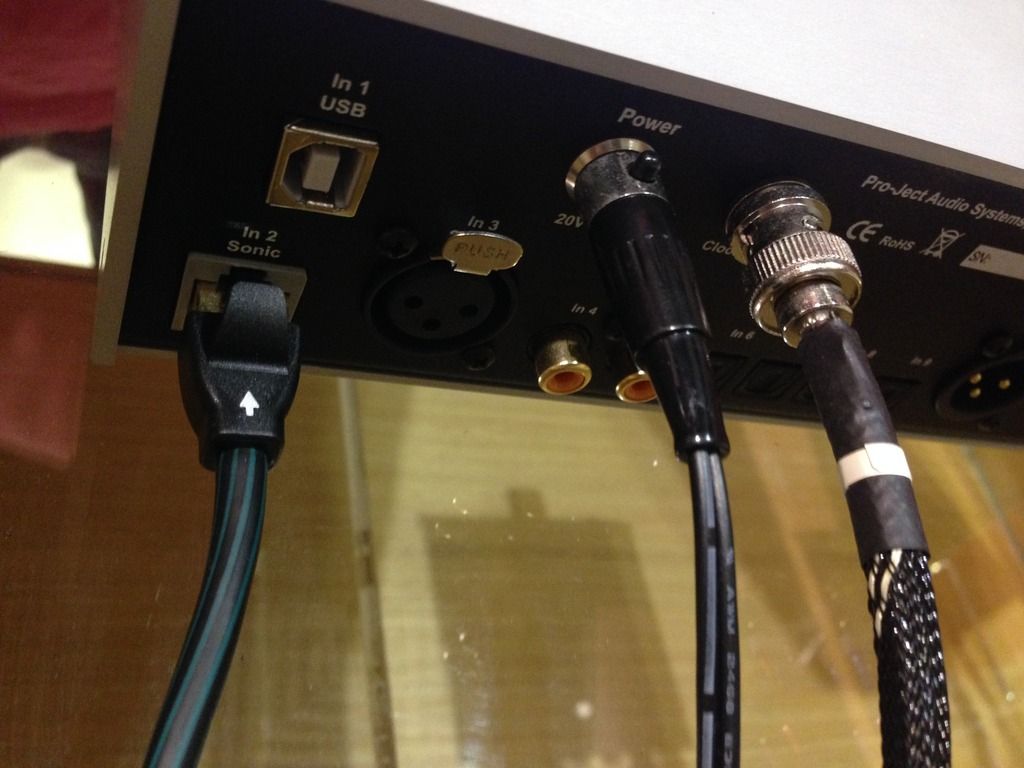Around about 4 years ago, I set on a series of experimentation to find out which way sounds better - Grounding or floating the earth of audio components in my system.
When a floated unit is plugged into the powergrid, and not powered up and not connected via interconnect to any other components, one can usually feel some amount of ac current leakage on the metallic surfaces of its chassis. While the dosage of leaked current is not fatal, they can be measurable with a multimeter. I wanted to find out if grounding the chassis of each particular component will reduce or eliminate this leaking ac current, and, more importantly, by doing so will allow the audio component to perform sonically better or not.
I started first by opening up the top panel of one of my CD players. It can clearly be seen that inside the chassis of this euro/asian version unit that the ground pin of the iec plug wasn't connected to anything, anywhere. I then look for the different possible places whereby I can screw a ground wire onto. As much as possible, i would like to implement the grounding the same way as it was done on the usa version i have seen on photos. Because, if the ac return path takes a different route, it might add unwanted noise unintentionally elsewhere onto parts crucial to sound reproduction. (this later did proved to be especially important)
Besides, I also wanted to make sure that while implementing the grounding, it does not in anyway leak fatalistic doses of ac current onto the chassis. So following the photos that i have seen I figured is the best and safest way. It is also neater. I would hate to see the ulgy sight of another wire dangling from the component. Besides, who is to say, the dangling wire wouldn't be an antenna for omnipresent RF noise hovering around everywhere?
But it seems that, compared to the usa version, my unit didn't come with the extra screw at the back panel of the chassis that allow the user to attach the ground wire to. Although I could solder the ground cable to the back panel if I wanted to, but I wanted to test it before i make it permanent. So it makes sense to use a short single conductor cable with a pair of crocodile clips at either end. They will allow me to add and remove the cable easily at any time during the test period. Also it allows me to swap the direction to and fro, to check for the directionality of this ground cable.
So I clipped 1 of the croc onto the IEC pin, and then the other croc was clipped onto the back panel. This part of the panel was painted black, so I scrapped the teeth of the croc clip on the surface to make sure it made real contact. After plugging in the ac power, I used the back of one finger to brush against the front panel of the player. I could feel that now the chassis of the player has no more current leakage. (it used to have some leakage earlier, which could be perceived as a sort of vibrating buzz on the back of the finger)
So far so good. It wasn't fatalistic. I'm still alive today.

I plugged the interconnects on, and sat down and listened.
The first impression was positive - height of the vocal image was more extended, above the height of the speaker tweeters. Second thing I noticed was that the silence between the musical notes were blacker, rendering clearer, the soundscape in which all the instruments are suspended. This of course has the effect of giving more space around each voices and instruments. I listened to a couple more tracks and the conclusion is the same.
I then swapped the direction on the grounding cable.
No good, the soundstage lost most of its spaciousness and the sound become muddy and dull. It became worst than not grounding the chassis.
I then swapped the direction back again. and all that sonic goodness I got previously were restored again. this proves that this particular single conductor cable is indeed directional, and it didn't need be actual audio signals for the effect to be audible. My guess is that the wrong directionality to the ac current had added some impedance to the current going back the return path into the power grid, thereby muddying the sound.
In this condition, I continued to listen to more tracks over the period of a week. Every 2 days or so, I continued to test the directionality. And each time, the result is the same.
One direction always sound better than the other.
Since the top panel has been removed, it was easy to do the swap anytime.
After 1 week, I decided to change to another set of grounding cable.
It is of the same make. What I wanted was to find out if the cable could benefit from any "run-in". Yes, it does. However, the first cable sounded better.
It sounded smoother at the top end, and less ragged.
The quieter parts are more quieter. And imaging outlines are more vividly carved, and fleshened out from the soundscape.
It is worthwhile to take note both these single conductor cables came from the same supplier, they have the same gauge, but their insulator were of different colours.

I continued to run in this original grounding cable. Over the next 3 weeks I tried attaching the croc clip to other metallic parts inside the chassis - like for instance - the parallel aluminium beams that reinforce the rigidity of the chassis, the aluminium tray that supports the power supply pcb board. Both these metallic portions are electrically linked to the whole chassis, as a simple test on a multimeter will show. But somehow the sound just isn't the same when grounding the chassis on both these portions. The sound became muddied and forward. Grounding the chassis from the back panel of the chassis proved to be the best sonically sounding. so it seems that if the return path for the leaked current is shorter, there is a chance that the resultant sound quality will be better.
After about another 1 month, I trimmed the cable down to 5 cm length. Soldered 1 end to the IEC plug's ground pin, and the other end to the chassis' back panel - making sure that the pre-determined directionality is maintained. There was a period of settling down for the soldering (about 3 days). After that the player perform as beautifully as I've ever heard it.
I did the same for the second unit of the exact same model CD player that I have. And the result is the same.





